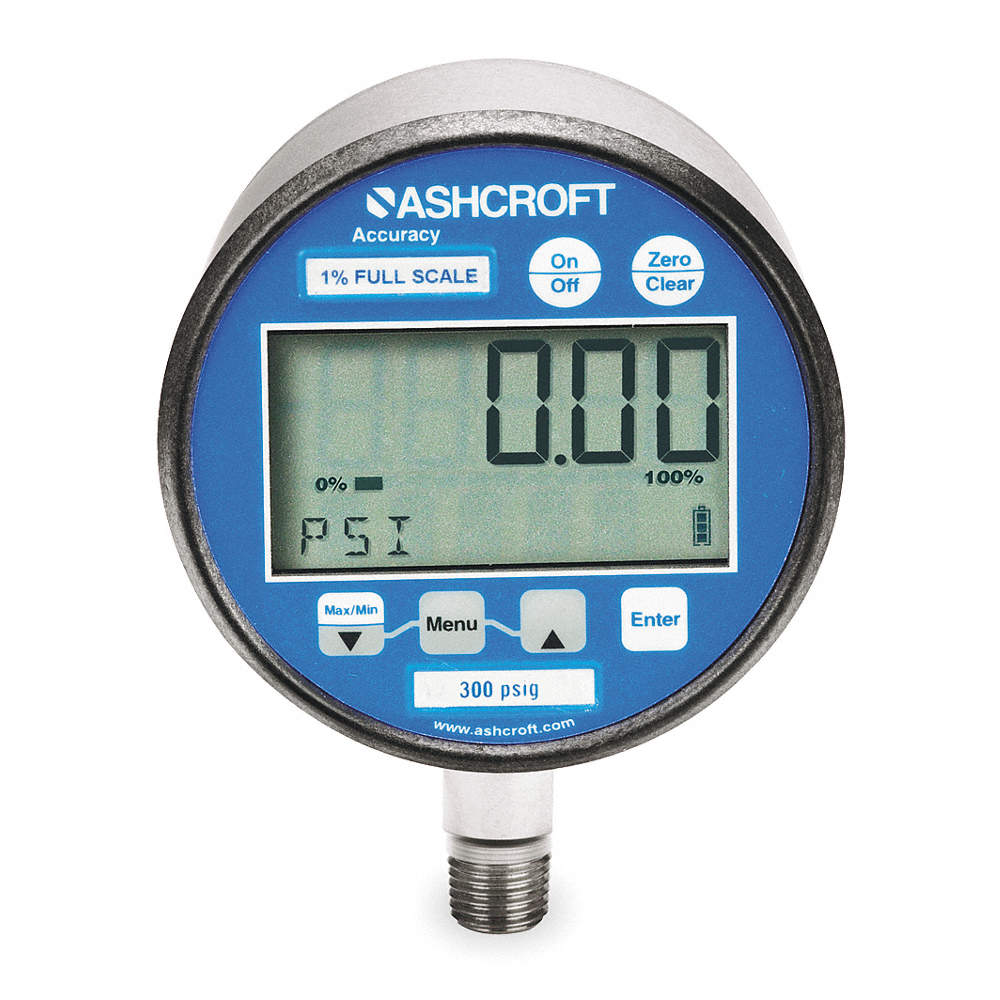Thank you, Scuba Tacoma!
The "blending gas for an extreme dive on standard scuba shop equipment", to which Doppler alluded in one of these convoluted threads, is a fascinating subject for anyone who has done or wants to do advanced gases.
Basically, Doppler said something about (paraphrased) you cannot partial-pressure blend when you are measuring moles of O
2'.
EDIT: the mass of an O
2 mole is 32 grams . . . or the mole is -- help!
To help those who don't know - to partial pressure blend in a 'normal' scuba operation, you figure out the percentages O
2 and what else you need. For this purpose, we will stick to O
2.
For example, if you have an empty AL80, to mix a 32% mix, you do the calculations (take the course) and you add 417 psi of O
2.
To measure this, you would want a digital gauge - analog is too much estimation.
You would want a gauge that measures up to 5000psi - because a gauge near its max and min is not as accurate.
So, let's say you get such a thing:
Note the gauge accuracy s 1% of its range. 1% of 5000psi = .01x5000 =
50 psi.
Wait, What?!?!?! That is PLUS or MINUS 50 psi. So that means you could have from 467 psi to 367 psi! Then top with air, that adds O
2.
Now, 467 psi O
2 ends up to 34%, and 367 psi O
2 ends up as 31%.
So, you have a possible % swing on O
2 percentage.
Here is the issue on the calculations - they depend on the
Ideal Gas Law. When you add in the temperature and such, things swing wider.
Down to 1200 feet would require around 3.9 % O
2. At the ambient temperature of the water at 1200 FSW.
(1) You cannot afford ANY swing in O
2 at that depth. You are
inches from Oxygen toxicity.
(2) You cannot measure that specific of O
2 without going to a temperature controlled, weight-measured-in-a-neutral-air environment.
Unless, of course, you have access to all the tools, instruments, support and supervisor expertise, and equipment of saturation divers (i.e., crazy people) who do 400 or more FSW daily.
Asbestos suit on. ;-)




